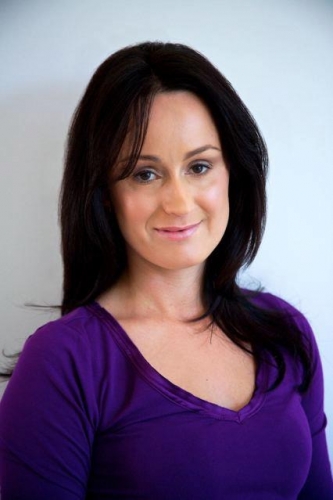Fertility nursing is equal parts rewarding and heartbreaking according to Amy Scott, a fertility nurse with
Genea Fertility, who works with woman and couples to achieve the ultimate gift – a baby.
As a former student nurse working in a low-risk birthing unit, Ms Scott’s passion for women’s health and pregnancy began early in her career and gained traction when she accepted a position as a specialist early pregnancy nurse in an emergency department.
Subscribe for FREE to the HealthTimes magazine
“I always knew I always wanted to work with this demographic of a patient. So, when I saw the job at Genea Fertility, I knew I would love it!
Working as a fertility nurse requires an interest in women’s health, compassion, empathy and an understanding of the pressure that infertility puts on patients, said Ms Scott.
“Fertility nursing generally moves away from acute clinical nursing and is far more counselling based, generally working from an office rather than on a ward.”
While Ms Scott said she enjoys her work in fertility, like any profession, it has its up and downs.
“Building strong relationships with patients is wonderful, explained Ms Scott, but it hits hard when a treatment cycle doesn’t end well.
“Informing patients that their pregnancy test is negative, or that their pregnancy hormone is dropping is heartbreaking.”
For this reason, fertility nurses, and those looking to enter the industry for the first time should never underestimate the need for patient-centred care when choosing a workplace, said Ms Scott.
“Fertility clinics should invest in nurses, counsellors and patient relationship coordinators to support patients through the often-difficult fertility journey, and may clinics cut corners,” said Ms Scott.
“Genea pours large amounts of profits back into research and development, and they are continually looking at ways to improve the patient outcome and experience.
“Whether that is designing new equipment to ensure more embryos are viable and therefore pregnancy rates are higher or developing a patient portal to ensure the patients receive their next step instructions in a timely informative manner.
“We are fortunate to have the expertise of a counselling team to refer our patients to, and they are pivotal in supporting patients through this journey,” she said.
It may come as a surprise that many patients do not share their fertility journey with friends and family, so fertility nurses act as emotional supports and sounding boards on the roller coaster that is infertility, explained Ms Scott.
“We build really strong bonds with our patients. Commiserating with them on the bad days and celebrating with them on the good.
“Delivering bad news is the most challenging part of being a fertility nurse.”
“But it’s an honour to look after these patients during their fertility journey, regardless of the outcome,” said Ms Scott.
Fertility Nurse, Madeline Towns, began her career as a medical secretary before embarking on a Bachelor of Nursing and, more recently, completing a Masters in Reproductive Medicine.
“I thoroughly enjoyed the contact I had with patients as a medical secretary but wanted to give more and to assist them further in their fertility and IVF journey.
“It was at that point I decided to complete my Bachelor of Nursing while still working full time. The Masters in Reproductive Medicine empowers me, even more, to assist couples with their desire to have a family,” said Ms Towns.
Now a nurse manager, Ms Towns is responsible for 1200 cycles per year, training a staff of four and managing the daily tasks and responsibilities in a busy In Vitro Fertilization (IVF) clinic.
“A typical day involves five nurse chats with patients, planning egg collections and embryo transfers, assisting with patient queries, and communicating with specialists.
“We run an early morning clinic for our patients Monday to Saturday from 7 am to 9 am. During these clinics, the nurses consult with patients, give medication demonstrations, take blood and perform ultrasound scans to monitor how the cycle is tracking.
“The rest of the morning is normally utilised meeting new patients and running through the treatment plan their fertility specialist has prescribed for them and explaining the IVF process.
“Around lunchtime, we receive blood results from the patients who attended the morning clinic, we liaise with doctors about next steps and then relay this information to the patients in the afternoon.
“I love making what can sometimes be a terrible, frustrating, stressful journey, somewhat easier.
“At times it is challenging with patients who are unsuccessful in the cycle, their heartbreak is felt throughout the clinic.”
However, despite this inevitable challenge, it’s still a rewarding career, said Ms Towns.
“I have never once felt like I was coming to work or that it was a chore. They say, “choose a job you love, and you will never have to work a day in your life", and for me, this is 100 per cent true," she said.
What do fertility nurses do?
Fertility nurses work with a team of specialised health care professionals in fertility clinics, obstetrics or gynaecology offices.
Working as a fertility nurse means confronting highly sensitive issues with patients, so excellent communication skills, compassion, and empathy are vital.
The inevitability of new research-based advances means it’s also essential to have a thirst for knowledge and an eagerness to learn to better patient outcomes.
A fertility nurse’s role includes many tasks and responsibilities, including:
-
Working as educators to discuss the pros and cons of available treatment options with clients who want to achieve pregnancy.
-
Offering emotional support and counselling to patients and their partner to cope with the difficulties of treatment and conception.
-
Teaching patients how to administer In Vitro Fertilization (IVF) treatments.
-
Facilitate the egg donation process, providing support and guidance to both couples and the matched donors.













